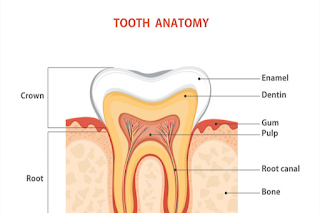After attempting to create a Podcast on Spotify, I learned that I need an RSS and would have to link this back to Spotify in some way. This would require that I make a Spotify account for Podcasters and would also require that I post publicly. This is not something that I had in mind for creating the Podcast. Therefore, I will have to backtrack a little bit. Looking at the two questions, the answers are very visual. Originally, I had planned that the video feed of the Podcast would help to provide an extra medium to give my answer, so I decided that a Directors Commentary would work. All the visual material is already to my disposal as I still have all the original and edited film. Furthermore, there are plenty of examples online such as the commentary for the movie Get Out (2018) by Jordan Peele.
In Jordan Peele's commentary, the direction and what was spoken about felt on the spot and raw. JordanPeele did not have a script. While I will be using one, I will be seeing how Jordan Peele went from one topic to another. This medium is a bit different from the interview in the fact that questions cannot be asked and the answers to the CCR questions must come up more naturally. The commentary begins with a cover page of the movie. I can use the Title screen as my movie cover. While the cover is shown, Peele introduces himself to the viewers and states that there are many spoilers and some background music plays during this period. The director plays the video and pauses while explaining. When the video plays, the original audio of the movie plays. What I found to be quite jarring, however, is that there is no signal for the pausing and playing of the video. While this is a small feature, I will be adding it to differentiate from other Director Commentaries.
After seeing this example, I will create my own script for the Director Commentary. The questions that I will be "indirectly" answering are as follows:
- How did your production skills develop throughout this project?
- How did you integrate technologies – software, hardware and online – in this project?
While the technologies are all different in aspects such as Premiere Pro being software and Blogger being online, they worked together to create a cohesive project. Firstly, I used Blogger, the online site where I posted the blogs during the eight weeks. Not only this, but it allowed me to gather my thoughts. For the production process, I used an iPhone 13 mini. This phone allowed me to blur and capture the story which I created. An additional bonus that only this phone could provide was higher resolution quality which I could not obtain without it. Premiere, Photoshop, and Audacity all helped me during the post-production process. Premiere allowed me to edit the video. The original, unedited clips had much potential which had to be refined through Premiere. Photoshop allowed me to create the Smile Room logo which was used in the video. Lastly, but not least, Audacity helped to record the audio recordings for the Foley sounds and recording over the video. This was used in the scene where the needle was unsheathed similarly to a sword. Technology played a critical role in making the product more cohesive.
The pulp is the most important part of the tooth, and as such my production skills developed so much throughout the course of this project. Not only did I learn how to manage such a large project with many parts, but my editing and filming skills also improved. When I started the project, I was at first unsure how to proceed with the mountain of work that had to be done in order to successfully complete the video. For me, it began with planning so I did not fall behind, like I saw other producers when they let work surmount. This ensured that I did not stack work for the following weeks. As well as this, I learned what it meant to create a cohesive story. At the beginning of my career, I tried to bunch abstract ideas into one video, but this made it so that my ideas were not conveyed as I had hoped. Therefore, I went for a much simpler concept which I could master fully.
There really is so much that went into the production, but I am leaving the content of the film for you to theorize. Thank you for listening.
This is what I have for my script, and I will work throughout the week to edit and record audio and video for the commentary.
Sources:
https://www.youtube.com/watch?v=eG5uT00SWNA




No comments:
Post a Comment